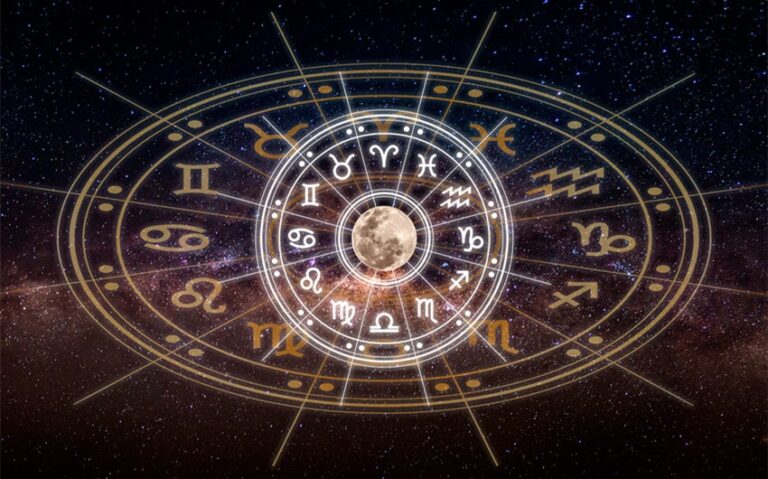The Karmic Relationship Meaning and Why It Feels So Intense
A karmic relationship can feel like a whirlwind, filled with intense emotions and challenging dynamics that seem impossible to escape. These relationships often bring people into your life to help you learn important lessons. The karmic relationship meaning lies in the belief that past-life connections, or unresolved issues, bring two people together to work through their karma.
While they can be difficult, these relationships push us toward personal growth and self-awareness. If you’ve ever felt stuck in a relationship that’s full of ups and downs, it might be more than just coincidence—you could be experiencing a karmic connection.
What Is a Karmic Relationship?
A karmic relationship is a spiritually significant connection believed to be rooted in the concept of karma, which originates from Eastern philosophies like Hinduism and Buddhism. Karma refers to the idea that our actions in past lives or earlier experiences can affect our current life. In a karmic relationship, two people are brought together to resolve unresolved issues or learn important life lessons tied to their past.
These relationships are often intense and emotionally charged, with the connection feeling almost magnetic. Unlike soulmate or twin flame relationships, karmic relationships aren’t meant to last forever. Instead, they serve a specific purpose: to push both individuals toward personal growth.
Through the highs and lows, these relationships force you to confront emotional wounds, break toxic cycles, and become more self-aware. While they can be difficult, karmic relationships ultimately help you evolve emotionally and spiritually.
Signs of a Karmic Relationship

Karmic relationships can be difficult to identify at first because they often feel like intense romantic connections. However, there are specific signs that differentiate them from other types of relationships like soulmates or twin flames. Here are some common indicators that you may be in a karmic relationship:
1. Immediate, Intense Attraction
In a karmic relationship, the attraction between the two individuals is often instantaneous and overwhelming. You might feel a strong, almost magnetic pull toward the other person as though fate has brought you together. This intensity can create a deep emotional connection very quickly, making it easy to mistake for true love.
However, this attraction is not always a sign of compatibility; it’s often a signal that you are drawn together to work through unresolved issues. The initial chemistry can be intoxicating, making it hard to see the potential red flags early on.
2. Emotional Highs and Lows
One of the defining traits of a karmic relationship is the emotional rollercoaster it puts you on. The highs can feel euphoric—moments when you feel deeply connected to your partner—but the lows can be equally as devastating, leading to feelings of intense hurt, frustration, or despair. These sharp emotional contrasts are a clear indicator that the relationship is karmic in nature.
Often, the arguments or disagreements seem to come out of nowhere, escalating quickly into emotional chaos. Despite the turmoil, the intensity of the relationship can keep you hooked, even when it’s causing you significant pain.
3. Repetitive Patterns
A major sign of a karmic relationship is the presence of repetitive cycles or patterns, especially negative ones. These can manifest as the same arguments, misunderstandings, or behaviors that seem to happen over and over again without resolution. Even though you may want to break free from these patterns, they often feel inescapable, as if you’re stuck in a loop.
This repetition happens because karmic relationships are designed to force you to confront certain issues—whether they’re related to boundaries, communication, or emotional wounds—that need healing. The cycles will continue until both partners have learned the lessons the relationship is meant to teach.
4. Codependency
Karmic relationships are often marked by a deep sense of dependency on one another. You may feel as though you need the other person to feel whole or fulfilled, even if the relationship is toxic or unhealthy. This can create an intense, often unhealthy attachment where you feel unable to leave, no matter how much emotional harm the relationship causes.
In many cases, both individuals in a karmic relationship are codependent, relying on each other to fill emotional voids or fix personal issues. This codependency can make it incredibly difficult to recognize when it’s time to move on or set boundaries.
5. Feeling Drained
While all relationships require effort, karmic relationships tend to be particularly draining, both emotionally and physically. The constant emotional turmoil, arguments, and unresolved conflicts can leave you feeling exhausted, as though you’re pouring all your energy into maintaining the relationship without receiving much in return.
Over time, this can lead to emotional burnout, yet despite feeling depleted, you may still find it hard to let go. The draining nature of karmic relationships often serves as a wake-up call, pushing you to prioritize self-care and learn how to protect your own energy.
6. Difficulty Letting Go
One of the most challenging aspects of a karmic relationship is the difficulty in letting go, even when it’s clear that the relationship is no longer healthy. Despite the emotional highs and lows, the intensity of the connection can make it feel impossible to walk away. You may find yourself drawn back to the person repeatedly, even after breakups or long periods apart.
This inability to let go stems from the karmic bond, which keeps pulling you together until the lessons of the relationship are fully learned. The process of letting go often requires deep personal reflection and the realization that the relationship has served its purpose.
7. A Strong Sense of Deja Vu
If you experience frequent deja vu in your relationship—situations, conversations, or emotions that feel eerily familiar—this could be a sign that your relationship is karmic. In spiritual terms, this sensation is often interpreted as a clue that you have encountered this person in a past life and are now working through unresolved issues together.
The repetitive nature of certain scenarios may be a manifestation of karma, drawing attention to lessons that were left incomplete in a previous life. This feeling of having “been here before” often accompanies a sense of being stuck or unable to move forward until the underlying karmic lesson is addressed.
8. Learning Hard Lessons
At its core, a karmic relationship is all about growth and transformation. These relationships are meant to push you to face uncomfortable truths about yourself, your behavior, and your emotional patterns. The lessons are often difficult, involving issues like self-worth, boundaries, forgiveness, or trust.
While these lessons can be painful, they are crucial for personal development. The relationship forces you to look inward, often revealing parts of yourself that need healing or change. Once you recognize these lessons, you can begin to take steps toward growth and self-improvement, using the relationship as a tool for deeper self-awareness.
Karmic Relationship vs. Soulmate and Twin Flame Relationships
Though karmic relationships, soulmate connections, and twin flame bonds can all feel deeply significant, they each serve different purposes and have distinct dynamics.
Karmic Relationships
These relationships are rooted in karma, meaning they are meant to teach important life lessons, often through challenging experiences. They are typically intense, emotionally charged, and full of unresolved issues that push both individuals to grow.
Karmic relationships often involve repetitive patterns, emotional highs and lows, and can be difficult to let go of until the necessary lessons are learned. They are often short-term and not meant to last forever, as their primary purpose is growth and healing.
Soulmate Relationships
A soulmate relationship, on the other hand, is generally seen as a more harmonious and balanced connection. Soulmates are people who come into your life to offer support, love, and understanding. The bond feels familiar and comforting, as though you’ve known each other for a long time, which may be due to a deep spiritual connection.
While soulmates also help you grow, their presence tends to be more positive and nurturing. Unlike karmic relationships, soulmates usually bring a sense of peace and alignment rather than conflict and turmoil. A soulmate relationship can last a lifetime, though it may not always be romantic.
Twin Flame Relationships
A twin flame relationship is considered the most intense and transformative of the three. In spiritual terms, a twin flame is thought to be your “other half,” a person who mirrors your soul. Twin flames share a deep, often spiritual connection and are believed to be destined to meet in this lifetime to experience personal and spiritual evolution.
Like karmic relationships, twin flame connections can be emotionally intense and may involve a lot of growth. However, unlike karmic relationships, twin flame unions are typically focused on spiritual awakening and deep personal transformation. These relationships may go through periods of separation and reunion as both individuals evolve, but they are believed to have a long-term purpose.
Why Karmic Relationships Are Challenging

Karmic relationships are uniquely difficult because of their intense emotional dynamics and the life lessons they’re meant to teach. While they often feel fated and deeply significant, these relationships come with several challenges that make them hard to navigate:
1. Emotional Intensity
Karmic relationships often begin with an overpowering emotional connection that feels impossible to ignore. The emotional highs are exhilarating, but the lows can be deeply painful. This intensity makes it difficult to find emotional balance within the relationship, leaving you feeling drained or overwhelmed. The purpose of this intensity is to push you to confront unresolved emotional wounds, but it can also make the relationship feel chaotic.
2. Repetitive Patterns
One of the hallmark signs of a karmic relationship is the presence of repetitive, negative cycles. These can manifest as recurring arguments, emotional breakdowns, or toxic behaviors that seem to happen over and over again. These patterns persist because the relationship is forcing you to confront unresolved issues or emotional baggage. Until both individuals learn the lessons the relationship is meant to teach, the same unhealthy cycles will continue to repeat.
3. Unresolved Karma
These relationships are believed to be rooted in unresolved karma from past lives or unfinished business from earlier in life. This makes the relationship feel fated, but it also stirs up deep emotional wounds that need to be healed. The unresolved karma at play brings up old patterns of behavior, creating tension and emotional friction. While this process is painful, it serves the purpose of pushing both partners to grow and evolve.
4. Difficulty Letting Go
One of the most challenging aspects of a karmic relationship is the difficulty in letting go, even when the relationship has become toxic or harmful. The intense connection can create a sense of dependency, where both partners feel bound to each other despite the relationship causing emotional pain.
This inability to let go is due to the unresolved karmic ties between you, which will persist until the lessons are fully learned. Breaking free from a karmic relationship requires deep self-awareness and the ability to recognize that the relationship has served its purpose.
5. Mirror Effect
Karmic relationships often act as mirrors, reflecting back your deepest insecurities, unresolved emotional wounds, and personal challenges. The other person triggers emotional responses that force you to confront uncomfortable truths about yourself. This mirroring effect can be painful because it reveals aspects of yourself that you may not want to face.
However, it is through this reflection that you can learn valuable lessons about personal growth and healing. While the mirror effect can make the relationship feel emotionally exhausting, it is an essential part of the karmic connection.
How to Heal and Move On from a Karmic Relationship
Healing and moving on from a karmic relationship can be a difficult process, but it’s essential for your emotional well-being and personal growth. Here are some steps to help you heal and move forward:
1. Acknowledge the Lessons Learned
The first step in healing from a karmic relationship is to reflect on the lessons it taught you. Karmic relationships often bring to light personal issues such as low self-esteem, lack of boundaries, or emotional triggers. Take the time to understand what the relationship was meant to teach you.
Ask yourself: What patterns did I notice? What did I learn about myself? Recognizing these lessons is essential for your healing, as it allows you to move forward with greater self-awareness and emotional clarity. Once you’ve internalized the lessons, you can begin to break free from the relationship’s hold.
2. Establish Boundaries
Setting and maintaining boundaries is crucial when healing from a karmic relationship. Often, these relationships involve blurred boundaries or codependency, making it difficult to separate yourself from the other person. To heal, you need to establish clear emotional and physical boundaries that protect your well-being.
This may involve limiting or cutting off contact with the person, especially if the relationship has been toxic. Firm boundaries will allow you to focus on your own healing process without being pulled back into the emotional turmoil of the relationship.
3. Practice Self-Care
Healing from a karmic relationship can be emotionally draining, so it’s important to prioritize self-care during this time. This means taking care of your emotional, physical, and mental health. Engage in activities that help you recharge and find peace, whether it’s spending time with loved ones, practicing mindfulness, journaling, or pursuing hobbies that bring you joy.
Self-care also involves being patient with yourself and allowing yourself to grieve the end of the relationship. Healing takes time, and it’s important to give yourself the space and compassion to recover fully.
4. Let Go of the Past
One of the most challenging aspects of healing from a karmic relationship is letting go of the past. Because these relationships are often tied to unresolved karma, it can feel like you’re leaving something unfinished. However, once you’ve learned the lessons, holding onto the relationship will only keep you stuck.
Practice letting go by accepting that the relationship has served its purpose and that it’s time to move forward. This may involve forgiveness—both of yourself and the other person—and releasing any lingering anger, resentment, or regret.
5. Focus on Personal Growth
Karmic relationships are ultimately about personal growth and evolution. Use the lessons you’ve learned to fuel your own self-improvement. This may involve working on emotional healing, building healthier relationship patterns, or becoming more aware of your needs and boundaries. Reflect on how the relationship has shaped you and what you can do differently in the future. By focusing on your personal growth, you’ll be better prepared for healthier and more fulfilling relationships down the road.
6. Seek Support
Healing from a karmic relationship can be an isolating experience, so it’s important to seek support from those around you. This might mean leaning on close friends or family members who can provide emotional support and encouragement. You could also consider speaking to a therapist or counselor who can help guide you through the healing process. Talking about your experiences and receiving outside perspectives can help you process your emotions and gain clarity on the lessons you’ve learned.
7. Embrace the Future
Once you’ve healed, it’s time to look toward the future with optimism. Karmic relationships are meant to push you toward growth, and once you’ve evolved, you’ll be ready to attract healthier, more aligned connections into your life. Trust that the lessons you’ve learned will serve you well in future relationships and that you’re now better equipped to find love and connection that is supportive, nurturing, and fulfilling. Embrace this new chapter of your life with openness and confidence.
What to Do If You’re in a Karmic Relationship

Being in a karmic relationship can feel confusing and overwhelming due to the intense emotions and recurring challenges. However, there are steps you can take to navigate this experience in a healthy way and move toward personal growth:
1. Recognize the Relationship for What It Is
The first step in dealing with a karmic relationship is acknowledging that it’s not a typical romantic connection. Understanding that this relationship is here to teach you important lessons, rather than to last forever, can help shift your mindset. Recognizing its karmic nature can allow you to stop clinging to the idea that it will work out in the traditional sense, and instead, focus on learning the lessons it brings.
2. Identify the Patterns
Karmic relationships often involve repetitive cycles, such as ongoing arguments, emotional highs and lows, or recurring misunderstandings. Take time to reflect on the patterns in your relationship. Are there certain triggers or behaviors that keep coming up? Identifying these patterns is key to understanding the lessons you’re meant to learn. Once you can spot these cycles, you can begin to address the root cause and break free from them.
3. Set Healthy Boundaries
One of the most important things you can do in a karmic relationship is to set and maintain healthy boundaries. These relationships often involve codependency or blurred emotional lines, which can make it hard to prioritize your own well-being.
By setting boundaries, you protect yourself from being pulled too deeply into the emotional turmoil of the relationship. Whether it’s limiting contact, communicating your needs more clearly, or establishing emotional distance, boundaries help create a healthier dynamic.
4. Focus on Self-Reflection
Karmic relationships are designed to push you toward self-awareness and personal growth. Take time to reflect on what this relationship is teaching you about yourself. Are you learning to set boundaries, build self-confidence, or heal emotional wounds? Journaling, meditation, or talking to a trusted friend or therapist can help you gain clarity on these lessons. The more you reflect on what the relationship is revealing about your own patterns, the better you’ll be able to navigate it with purpose.
5. Practice Self-Care
Being in a karmic relationship can be emotionally exhausting, so it’s essential to prioritize self-care. Make time for activities that replenish your energy, calm your mind, and bring you joy. This could include exercise, spending time with loved ones, engaging in hobbies, or simply relaxing. Taking care of yourself is crucial for maintaining emotional balance, especially when the relationship becomes overwhelming.
6. Accept That It May End
One of the hardest parts of a karmic relationship is accepting that it may not be meant to last. Karmic relationships often come to an end once the lessons are learned, even if the connection feels strong. Holding on too tightly can prevent you from moving forward.
Accept that the relationship has a purpose—helping you grow—and that it might be time to let it go once you’ve gained the insights it offers. Letting go doesn’t mean failure; it means you’ve grown beyond the need for that particular relationship.
7. Learn from the Experience
Every karmic relationship leaves you with valuable life lessons. Whether it’s learning about self-worth, developing emotional resilience, or understanding your own relationship patterns, these experiences can help shape you into a more self-aware and empowered person. Reflect on what you’ve learned and how you can apply those lessons to future relationships. By taking the lessons with you, you’ll be better prepared for healthier, more balanced relationships in the future.
8. Seek Support
Karmic relationships can be emotionally draining and isolating. Don’t hesitate to seek support from friends, family, or a therapist. Sometimes an outside perspective can help you see the situation more clearly and offer guidance on how to navigate the relationship’s challenges. Talking to someone can also help you process your emotions and gain insight into the lessons the relationship is teaching you.







